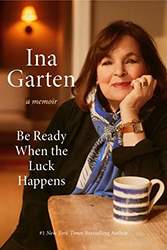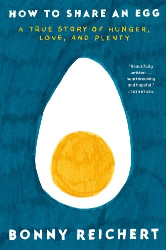December 19, 2013
Like many Jewish Americans, Elizabeth Ehrlich was ambivalent about her background. She identified with Jewish cultural attitudes, but not with the institutions; she had fond memories of her Jewish grandmothers, but she found their religious practices irrelevant to her life. It wasn?t until she entered the kitchen – and world – of her mother-in-law, Miriam, a Holocaust survivor, that Ehrlich began to understand the importance of preserving the traditions of the past. As Ehrlich looks on, Miriam methodically and lovingly prepares countless kosher meals while relating the often painful stories of her life in Poland and her immigration to America. These stories trigger a kind of religious awakening in Ehrlich, who – as she moves tentatively toward reclaiming the heritage she rejected as a young woman – gains a new appreciation of life?s possibilities, choices, and limitations.
Which aspects of Elizabeth’s story do you identify with? Which parts are you less connected to? Do you think someone with a very different personal/family history could read this book in the same way? The book is structured with personal journal entries of Elizabeth’s own spiritual journey at the beginning of each chapter. Did you feel that these were cohesive with the rest of the narrative? How did they affect your reading of each chapter?
Discussion Questions
JBC Book Clubs Discussion Questions
- Did you learn anything from reading this book? What will you take away from this story?
- The recent Pew Survey of Jewish Americans generated a lot of conversation about being Jewish “by religion” and being culturally Jewish, and how younger generations choose to identify with Judaism. What do you think this book has to say about that? Do you agree or disagree?
- Does Elizabeth fall more into the category of Jewish by religion or by culture?
- Throughout the book, Elizabeth writes about finding ways to “feel Jewish”. What are characteristics that “feel” Jewish to you?
- Elizabeth is concerned about passing along Jewish identity. She writes “Without any particular sense of obligation, I felt Jewish, I felt a valuable if occasional differentness, and I wanted to pass that on. I wanted my children to eat stuffed cabbage, then yearn for strudel, not ice cream or flan. It was the least way I could honor the grandmothers.” (p. 127). What do you think about her statement?
- Elizabeth is a second generation American Jew who grew up with memories of her immigrant grandparents. If a Millennial had written this memoir, what would be different?
- Do you have particular foods that are intrinsically linked to family traditions or memories?
JBC Book Clubs questions © Jewish Book Council, Inc., 2014




